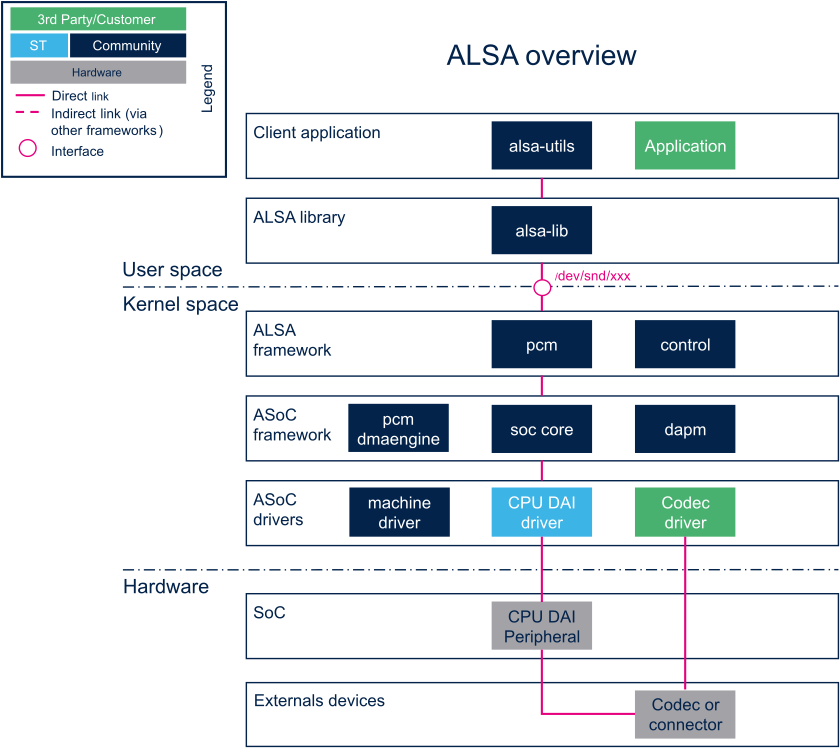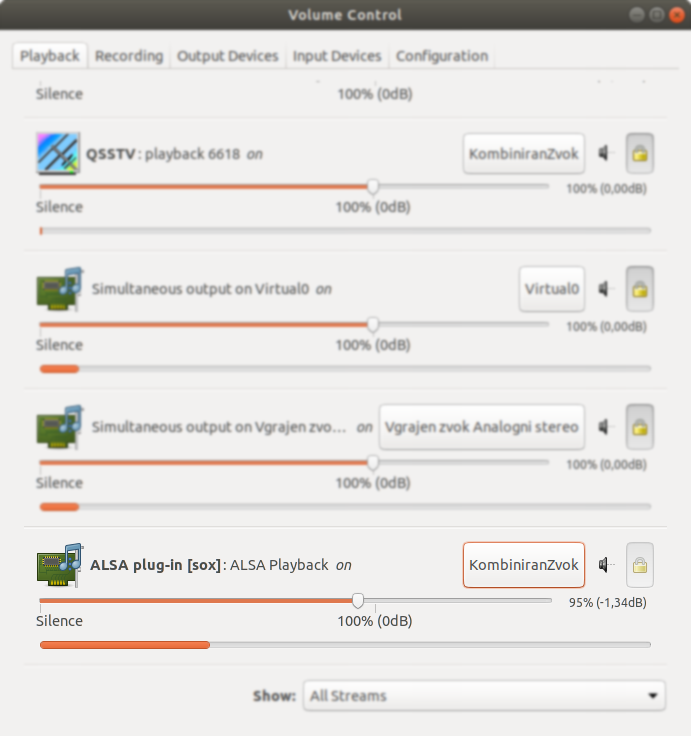

- #Pulseaudio vs alsa install#
- #Pulseaudio vs alsa driver#

#Pulseaudio vs alsa driver#
OpenAL Soft should use PulseAudio by default, but can be explicitly configured to do so: /etc/openal/nf drivers=pulse,alsa 4.5 libaoīe sure to remove the dev=default option of the alsa driver or adjust it to specify a specific Pulse sink name or number.
#Pulseaudio vs alsa install#
Install gst-plugins-good, or gstreamer0.10-good-plugins if your intended program has a legacy GStreamer implementation. You can also add a custom wrapper script like this:Įxec padsp /usr/bin/OSSprogram sure /usr/local/bin comes before /usr/bin in your PATH. Programs using OSS can work with PulseAudio by starting it with padsp (included with PulseAudio): There are multiple ways of making OSS-only programs output to PulseAudio: Use pavucontrol to control PulseAudio volume if needed.

They both should produce sound simultaneously.
Now, reboot your computer and try running ALSA and PulseAudio applications at the same time. $ chmod +x ~/.kde4/env/kmix_disable_pulse.sh $ echo export KMIX_PULSEAUDIO_DISABLE=1 > ~/.kde4/env/kmix_disable_pulse.sh Optional: If you use kdemultimedia-kmix you may want to control ALSA volume instead of PulseAudio volume:. Load-module module-alsa-source device=dsnoop Then find and comment lines which load autodetect modules. After this your ALSA apps will use ALSA directly without being hooked by Pulse.įind and uncomment lines which load back-end drivers. Remove package pulseaudio-alsa, which provides compatibility layer between ALSA applications and PulseAudio. The following steps allow you to make PulseAudio use dmix instead of grabbing ALSA hardware device. You may want to use ALSA directly in most of your applications and to be able to use other applications, which constantly require PulseAudio at the same time. Note: This section describes alternative configuration, which is generally not recommended. If it is currently loaded ( lsmod | grep oss), disable it by executing:Ĥ.1.1 ALSA/dmix without grabbing hardware device To prevent applications from using ALSA's OSS emulation and bypassing PulseAudio (thereby preventing other applications from playing sound), make sure the module snd_pcm_oss is not being loaded at boot. This package contains the necessary /etc/nf for configuring ALSA to use PulseAudio.Īlso install lib32-libpulse and lib32-alsa-plugins if you run a x86_64 system and want to have sound for 32-bit multilib programs like Wine, Skype and Steam. Install pulseaudio-alsa from the official repositories. If you are not running GNOME, KDE, or Xfce, and your ~/.xinitrc does not source the scripts in /etc/X11/xinit/xinitrc.d (such as is done in the example file /etc/skel/.xinitrc), then you can launch PulseAudio on boot with: If PulseAudio is not running and users are using X, the following will start PulseAudio with the needed the X11 plugins manually: Note: As mentioned previously, PulseAudio is very likely launched automatically via either /etc/X11/xinit/xinitrc.d/pulseaudio or the files in /etc/xdg/autostart/ if users have some DE installed. Optional KDE plasma applet: kdemultimedia-kmix (If KMixfail to connect to PulseAudio at boot you may need to edit /etc/pulse/nf to include autospawn = yes instead of autospawn = no.). Optional web volume control: PaWebControl. Optional GTK GUIs: paprefs and pavucontrol. 5.3 Load equalizer and dbus module on every boot. 5.1 Load equalizer sink and dbus-protocol module. 4.1.1 ALSA/dmix without grabbing hardware device. 3.1 Autostarting in unsupported desktop environments.







 0 kommentar(er)
0 kommentar(er)
